eco-farming

Sustainable Farming Working in Harmony with Land, Animals & Plants

Agricultural Ecological Farming works in harmony with the land, using both animals and plants in a sustainable manner, utilising all of the resources available and then closing the loops and not wasting anything. Like all farming, it is intensive and requires commitment to the land in order to optimise and utilise its resources to their fullest potential. Examples of this type of sustainable farming can be found all over South Africa and can even extend into urban areas. The focus is about understanding your environment, your needs and how these needs can be met by harmonizing with your environment. Ideally, you don’t want to alter or change your environment, but rather work with it, enabling it to thrive and creating abundance with creative and correct input from you, the farmer or grower.

Did you know that people are transforming urban gardens into natural havens with little effort, bringing in nature to do most of the work? For example, (on properties that permit) chickens are great at clearing pests around the vegetable gardens whilst they fertilize and scratch the soil at the same time, creating richer soils that will yield healthier plants. They can also supply you with fresh eggs and meat, should you wish.
The use of companion plants and flowers will bring birdlife and bees into your gardens, leading to cross pollination and the prospect of more life. These companion plants can also provide many uses as natural pesticides or bactericides, their colourful flowers can even be edible and used in salads or pot pouris, etc. These are just a couple of examples of how, if we harmonize with nature and our surroundings, we can find the most incredible abundance and serenity.

If you’d be interested in a basic list of companion plants for the vegetable garden, Blackwood’s offer a great list here: Companion Planting Vegetables. They also offer sets of printable vegetable planting charts, which are very handy. You can get those here: Vegetable Planting Charts.
SAGEWOOD CAFE & DELI’S HOMEGROWN GARDENS
At Sagewood, we’ve created an urban garden / farming project that closes many of the loops that are created from the daily running of the restaurant. For example, our coffee grounds, vegetable cuttings / peelings, cold pressed vegetable juice extraction waste and any other organic fruit and vegetable offcuts are kept in separate waste containers and turned into amazing compost, which then recirculates into the soil of our gardens, building it up with nutrition and vitality which feeds our vegetables, which are then sold back to the restaurant and used in our meals. This creates healthy, organic food; it creates jobs for people in the local community and builds experience and food security which ultimately leads to sustainable and abundant livelihoods.
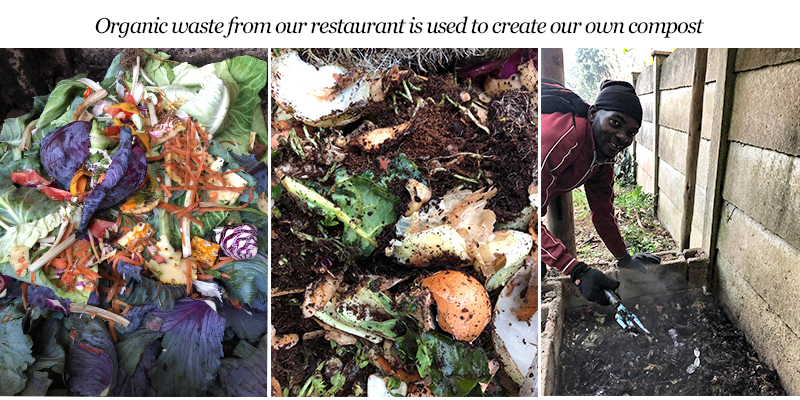
“Reduce, Re-use and Recycle” has long been the mantra of those choosing a more sustainable and conscious approach to consumption and modern day living. These are part of the bigger picture that each and every one of us could, and really should, be participating in to keep the fragile and magnificent ecosystem called Planet Earth fresh, healthy and sustainable. Utilising larger tracts of land, this method of farming becomes more intensive, with many opportunities to form symbiotic relationships between fauna and flora. It really becomes a way of life. A really satisfying way of life too!

ENALENI FARM
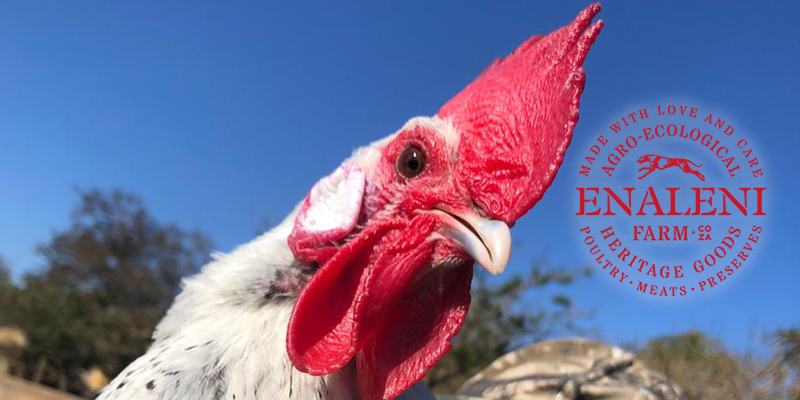
Just recently, I visited Enaleni Farm out on the Richmond Road. It’s a small, working farm focused on Heritage breeds in both fauna and flora. It was fascinating meeting Richard Haig, who has been living his passion for many years, farming exclusively Heritage breeds; Zulu Sheep, Nguni cattle, Kolbroek pigs, turkeys, Chinchilla and New Zealand Red rabbits and of course his incredible heritage breed chickens, that have become renowned throughout the years at the Royal Agricultural Show.
Richard has a passion for Ancient Grains and Heirloom plants too, including beautiful Zulu corns and potatoes. Throughout the year, he uses what he needs from the gardens and then saves the seeds so that he can replant the following season, and so the loops continue to evolve and strengthen. He gave me a ‘Salad Blue’ seed potato to plant in my gardens, which I did. It flourished into life, which I was super excited about, only to have it eaten by moles just last week. This is part of the journey too, as we share our spaces with nature. It is what it is! The question now, is how do I grow potatoes in my gardens when there are moles around?
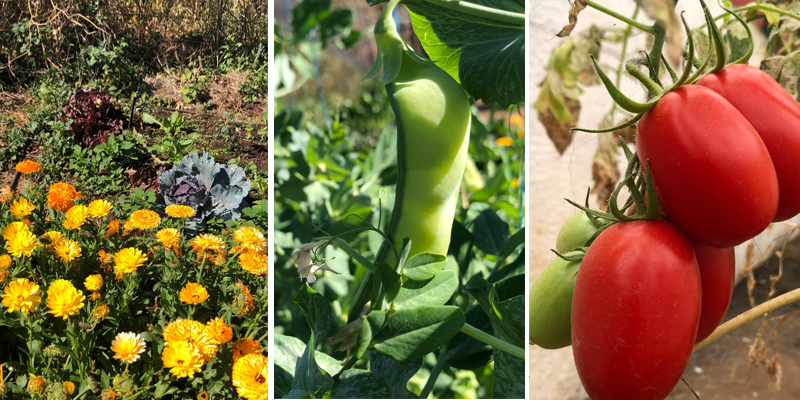
Well, my thinking is to take old 20 litre used plastic buckets from the restaurant, drill holes into the sides for drainage and dig them into the soil so that they are sticking out about 5 – 10 cm above the ground; fill them with soil and plant the potatoes inside them just below the surface. Then, as they grow, I can add soil to them with old tyres or wooden boxes as a supporting structure above the ground for the potatoes to grow safely away from the hungry moles. This is an example of how we approach things in the garden and how it “Re-Uses” what would normally have become waste on the landfill site. And it’s this kind of thinking and awareness that evolves and grows as you embark on a journey of sustainable and caring approaches to your life and the environment around you.
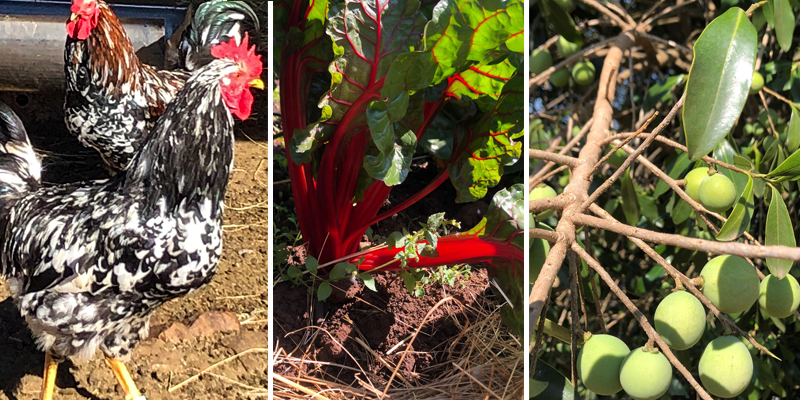
I was inspired whilst walking through Richard’s gardens and farm to see how everything was in sync with the seasons, the plants serving the animals and the animals serving the plants, and Richard, the conductor and catalyst, ensuring everything is nurtured and sustained during their life cycles. A beautiful dance in harmony with nature, that is both creative and compelling all at once. Everything comes from the farm and is recycled back into the farm. There is simply abundance for all! It’s a stunning example of Slow Food integrity and Sustainability in a world largely engulfed by materialism, capitalism and consumerism; going very much against the harmony of nature and our planet as a whole. Much could be learnt from people like Richard Haig and I was inspired by his efforts and will continue to steer Sagewood in a similar direction.
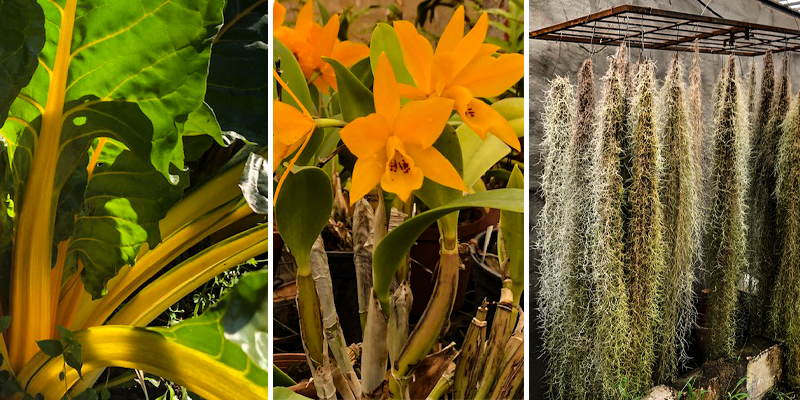
At Sagewood, we have been maintaining and building our own roots into sustainable processes for a number of years now. Meeting Richard and visiting Enaleni Farm has motivated me even more to continue building toward a greener and cleaner future. A future that enables prosperity, food security and diversity, a future of abundance for all! Communities that thrive through a natural and integral approach to one other, their environments and their daily lives.
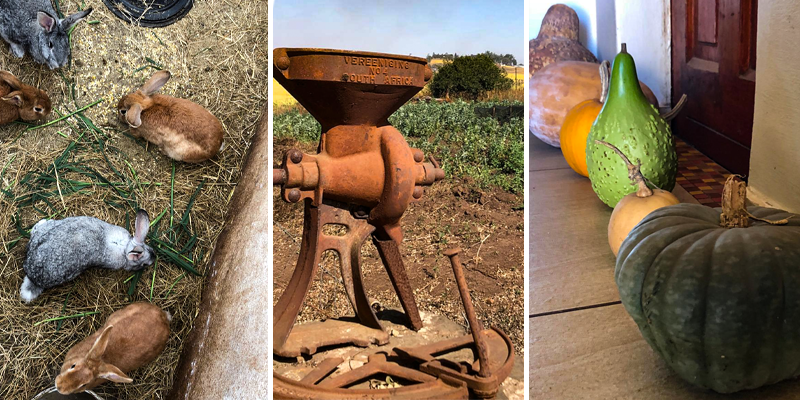
Thanks for allowing us to visit your beautiful farm, Richard!
See you at Sagewood!
share this:

